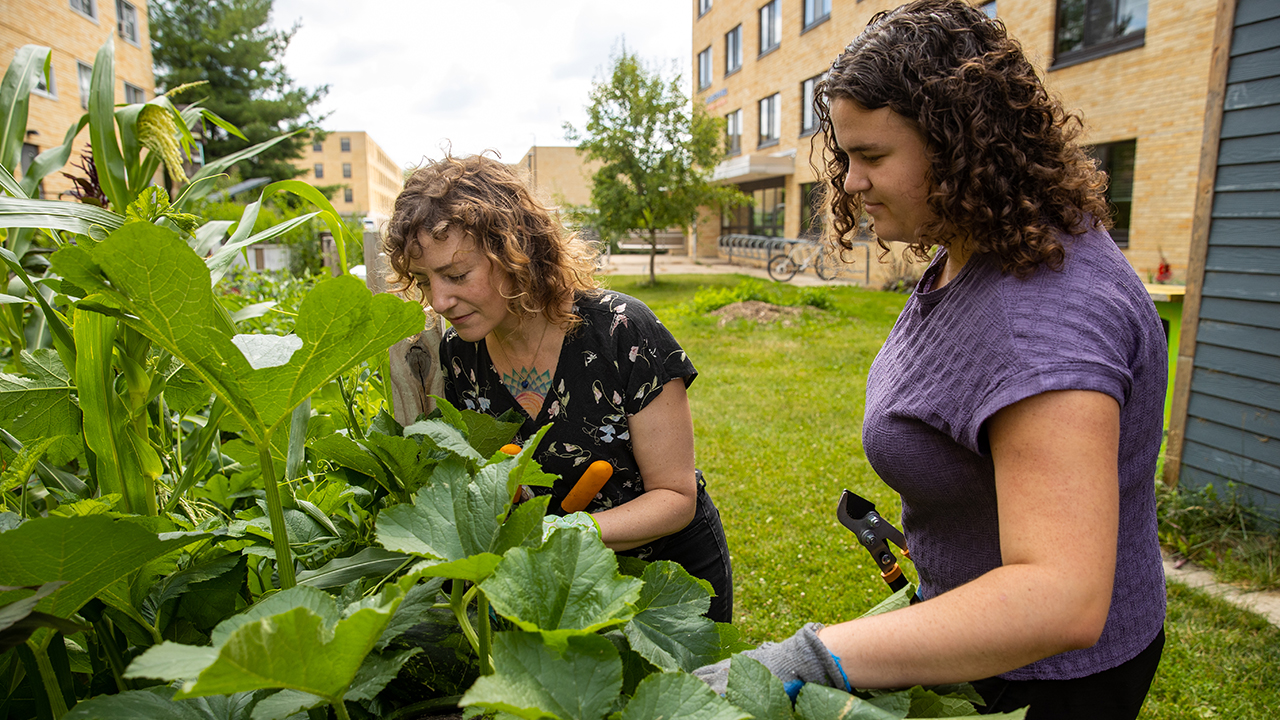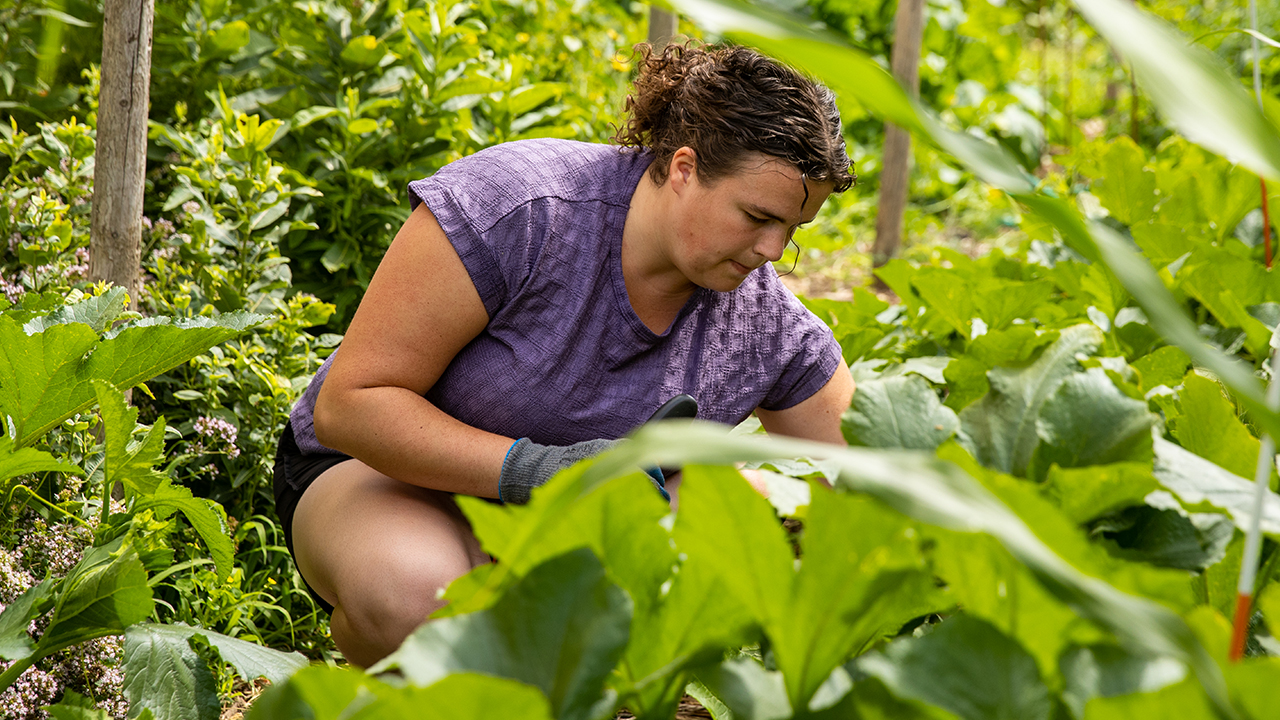

Ellie Zimmermann, a senior at the University of Wisconsin-Platteville from Lakeville, Minnesota, is spending the summer conducting research to explore the connections between community garden space and the perceptions of health and well-being and food security in the local community.
Zimmermann is one of 10 students participating in this year’s Summer Undergraduate Scholars Program at UW-Platteville. Now in its sixth year, the SUSP provides an intensive summer scholarly experience that prepares students for graduate studies, as well as helps enhance the culture of scholarship among students and faculty. Participants in the program have an opportunity to dive deep into their area of interest and work full time on a research project or creative activity. This year’s projects range from biology, agriculture and animal science to theatre, psychology, English and more. In addition to faculty mentorship, the program offers weekly group meetings to explore topics such as leadership development, research ethics, preparing for graduate school and developing scholarly presentations.
Zimmermann’s research is rooted in the concept of food sovereignty, an idea arising from Indigenous movements that refers to people’s right to access healthy, local, culturally-appropriate food. Zimmermann says it’s critical to address food sovereignty issues to ensure food security on a broad scale. Her research explores the potential role community gardens can play in addressing both issues of food sovereignty and security, as they can help return the control of food production back to local communities and provide members access to fresh produce.
Zimmermann is conducting her research in the Platteville community, using the campus’ Edible Garden, located between McGregor and Royce halls; conducting interviews with local organizations, including the Platteville Food Pantry and Pioneer Provisions; and issuing surveys to food assistance program recipients. She is mentored by Dr. Laura Dev, assistant professor of environmental sciences and society.
“I was interested in this project, because I wanted to work in the garden and help get it back to what it was before COVID,” said Zimmermann, who is majoring in biology and environmental science and conservation. “I also wanted to know how the garden actually impacts the community and how people benefit from it, so I thought it would be interesting to find out around our community.”
Zimmermann will be continuing her research in the fall, so while it is too soon to draw conclusions, she has noticed some trends.
“So far, everyone [who has responded to the survey] has been interested or said they think a community garden will have a positive impact on the community, and they would be interested in participating in one,” said Zimmermann. “At food pantries, people have responded that community gardens have a positive impact and have helped them eat more of a variety of food. They noted this is especially helpful with food prices going up lately.”
Zimmermann says she has enjoyed her involvement in SUSP, especially the opportunity to work one-on-one with a faculty mentor and meeting the other students.
“I really like doing independent research with a mentor, she has helped me a lot,” said Zimmermann. “Also, I’ve enjoyed getting to know other people and becoming friends. It’s awesome knowing everyone is going through the same things with their research.”